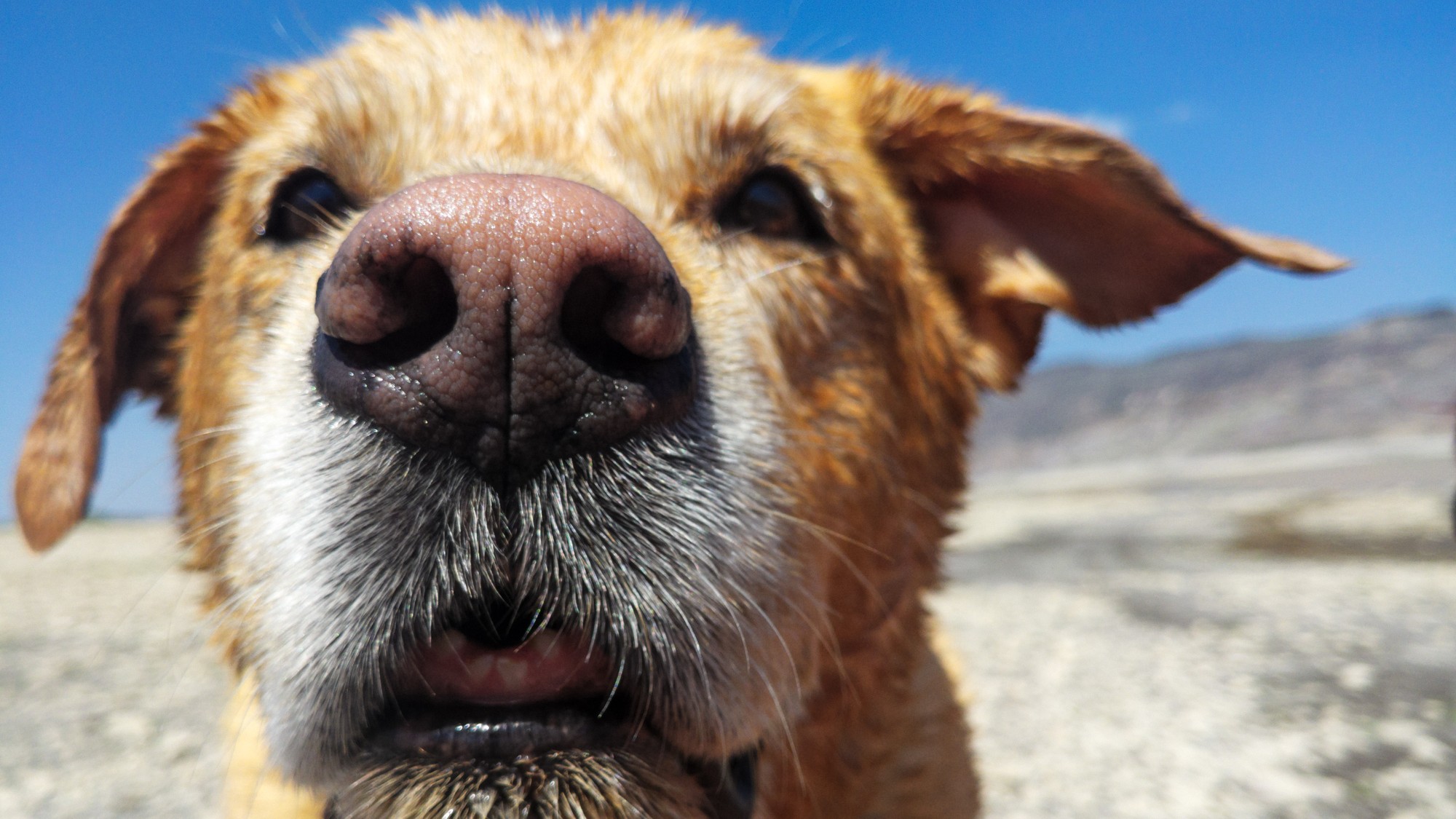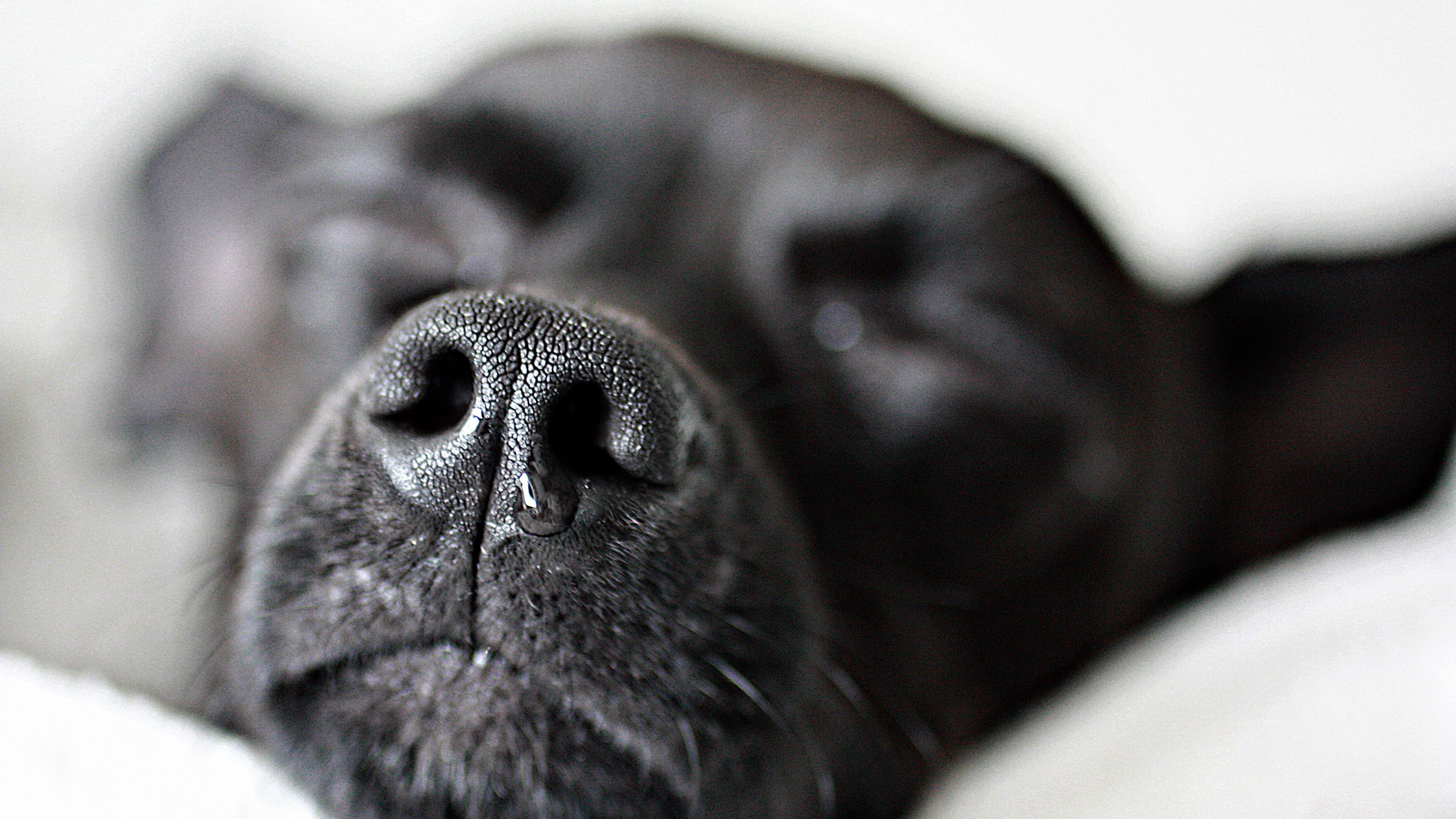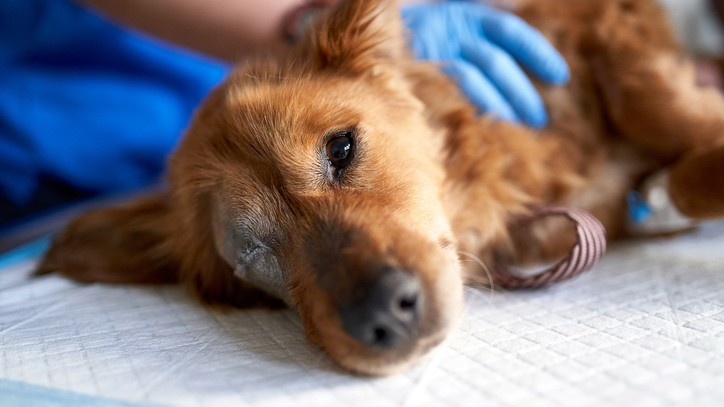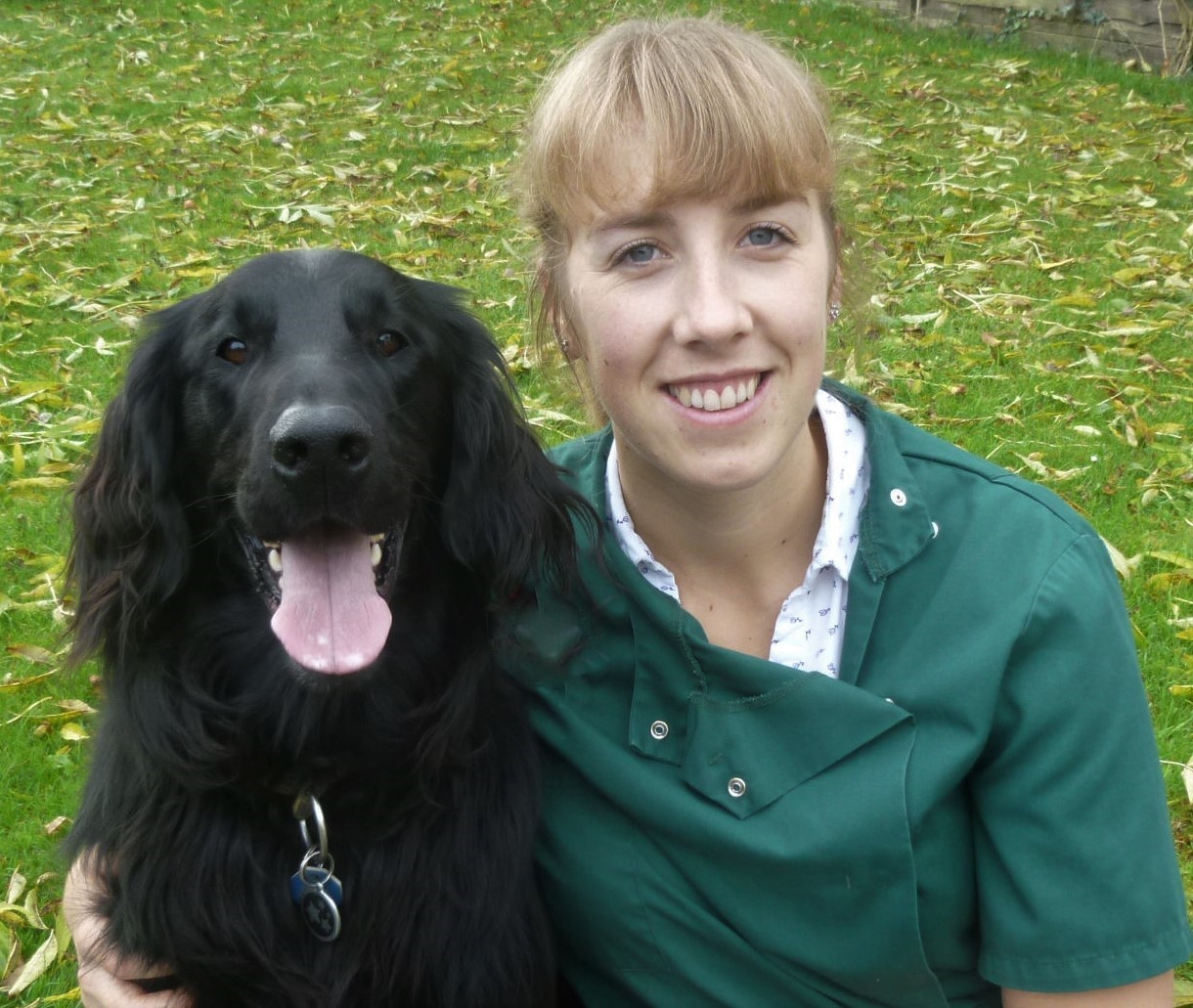Why your dog's nose is dry, according to a vet
Worried that your dog's nose is dry? We give you the rundown on the reasons for this normal condition and when it might be a cause for concern

Get the best advice, tips and top tech for your beloved Pets
You are now subscribed
Your newsletter sign-up was successful
If you find that your dog's nose is dry there are a few reasons that could be behind this.
It is a bit of an old wives’ tale that all healthy dogs have wet noses; so a dry nose doesn’t necessarily mean that your dog is unwell. It is true that occasionally an underlying illness could be the cause, but not always, as many healthy dogs can have dry noses too.
If you're worried that your dog may be sick, the good news is that a dry nose can be caused by multiple things. This article will explore the reasons why dogs have wet noses, what the potential causes are behind your dog's dry nose, and when it's time to take your canine to the vet.
Why are dog noses wet?
Dogs are well known for their excellent sense of smell, and their noses work best when they're wet. They're designed this way to trap scent particles, which occurs within a thin layer of mucus on the nose surface. This allows them to hold onto and examine the smell thoroughly. Some dogs will lick their noses to moisten them further when having a good old sniff.
The nose also helps dogs to cool down. Unlike us humans, they are unable to sweat so moisture evaporating from the nose surface, as well as from their mouth through panting, can help to cool them down.

Why is my dog's nose dry?
Most of the time a healthy dog’s nose will be nice and moist, but there are some situations when it could feel a bit dry. Some of these are normal occurrences and others could be due to ill health. Here are 9 reasons your dog could have a dry nose:
1. He’s been asleep
When your dog is asleep, he is no longer licking his nose and his nasal secretions have dried up. Usually, once he is up and going again his nose will moisten up.
Get the best advice, tips and top tech for your beloved Pets
2. Heating in your home
Things like central heating or air vents can dry our pet’s noses out. You might have noticed the same thing happens to your skin during the winter months! This is especially common if your pup likes to sleep curled up next to a warm radiator or fireplace.
3. Age
Older dogs seem to have more dried-out noses than younger dogs. This isn’t a particular concern unless your dog’s nose is becoming cracked or sore.
4. Breed
Brachycephalic (flat-faced) breeds like bulldogs, boxers, and pugs tend to be more prone to dried-out crusty noses. Other breeds, like Chihuahuas and Shih-Tzus, struggle to lick their nose as easily to keep them moist.
5. Congenital abnormalities
Some dogs can suffer from issues they have had since birth, which may have given rise to facial deformities causing their nose to be dry.
6. Hyperkeratosis
Hyperkeratosis describes an over-production of keratin (the protein that makes skin and hair), leading to hardening and cracking of the nose surface. This condition is common in brachycephalic or flat-faced breeds like those mentioned earlier.
It’s important to never pick at these areas as it will only cause bleeding and risk introducing infection. Hyperkeratosis can be managed with regular applications of petroleum jelly or nose balms to help keep the area moistened, however, in severe cases excessive tissue may first need to be trimmed by a vet.
7. Sunburn
Pale, non-pigmented noses are more likely to catch the sun and become damaged. Use pet safe sun lotions if your dog has a pale/pink nose, to help protect them.
8. Dehydration
In very hot weather your dog’s nose could become dried out, or if he is very poorly and not taking drinking enough water. If he has an illness causing dehydration such as vomiting or diarrhoea, then treatment for this is crucial.
9. Illness
Several illnesses could affect the skin on the nose such as an autoimmune disease which may cause cracks or sores, and certain types of cancer. Distemper, a viral disease, could cause cracking of the skin on the nose as well as the paws. Other serious symptoms can also be seen with this infection, but thankfully most dogs are now vaccinated against this disease.

When should I take my dog to the vet?
You should take your dog to the vet if you notice any of the following signs along with a dry nose:
- Bleeding from the nose
- Painful cracks or sores
- Rubbing or scratching at his nose excessively
- Breathing difficulties
- Excessive discharge from the nose
- Reduced appetite
- Lethargy
What to do for a dry nose on a dog
It’s important to remember that the occasional dry nose usually isn’t anything to worry about and most dogs will experience this from time to time. However, if your dog’s nose is uncomfortable (cracked, ulcerated, bleeding, or painful) or you are worried about how it looks, you should seek help from a veterinarian.
If your dog’s nose is dry but otherwise comfortable, you may consider using a nose balm (formulated for dogs) to help keep the nose soft and prevent cracking. If your dog is one of the ‘at risk’ breeds for hyperkeratosis you might also consider using a nose balm preventatively. Just make sure to speak to your vet for advice before you start.
How to moisturize a dog’s nose
Before applying anything to your dog’s nose make sure to get the go-ahead from your vet. If your dog has an underlying condition causing their dry nose you might risk making it worse or introduce infection.
If using a nose balm or sunscreen first make sure your pup’s nose is clean before application. These products need to be specially formulated to be safe for dogs as your pup will be able to lick them off easily. Apply the product as often as required to keep their nose moist and comfortable.
Remember, your pup will lick and remove the product, so regular application is important. It can be helpful to play a game with your pup after application to distract them briefly while it absorbs. This also rewards your pup for having their nose balm or sunscreen applied, making it a much more positive experience. Always make sure to wash your hands thoroughly after application.
Conclusion
Many dogs can have dry noses without there being a serious underlying issue. Monitor the skin on their nose closely for any signs of sores or cracking, and seek veterinary advice if this occurs. Most of the time a dry nose is nothing to worry about but always get it checked if you aren’t sure!
Rebecca is a veterinary surgeon who graduated from the Royal Veterinary College in London in 2009. She enjoys medicine in particular and she is proud to have achieved a BSAVA postgraduate certificate in small animal medicine (with commendation) from Nottingham Trent University in 2021.
She has a wealth of experience in first opinion small animal practice, having done a mixture of day-to-day routine work, on-call emergency duties and managerial roles since 2009.
She writes on various feline and canine topics for the Veterinary Content Company and a freelance basis, including behavior, nutrition, and health. Outside of work and writing she enjoys walking her own dog, spending time with her young family and baking!

